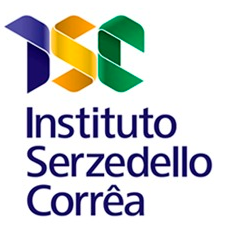Tribunal de Contas da União
TCU Approves Policy for the Prevention and Fight Against Moral and Sexual Harassment
On March 8, International Women's Day, the President of the Brazilian Federal Court of Accounts (TCU), Minister Bruno Dantas, signed the regulation that established the Policy for the Prevention and Fight against Moral and Sexual Harassment and All Forms of Violence and Discrimination. The document establishes guidelines and measures to be adopted to promote a workplace that is safe, decent, healthy, sustainable, and free from inappropriate behaviors.
The Sustainable Development Goal (SDG-5) of the UN's 2030 Agenda addresses gender equality and aims to eliminate all forms of violence against women and girls in the public and private spheres. In this context, according to UN Women, the concept of violence includes sexual harassment as a conduct to be tackled by all countries.
The new regulation reinforces TCU's priority action in this area. According to the President of TCU, the initiative contributes to fostering cultural changes in the Court, and indirectly, in all other spheres of Public Administration.
"We have worked assertively to help in reducing gender inequality in the public sector, whether through external control actions or the Court's internal management actions," says Dantas.
The guidelines of this new policy apply to all kinds of harassment, violence, and discrimination practiced in person or online against any individual.
According to the Brazilian Public Labor Prosecution Office (MPT), more than eight thousand complaints of moral and sexual harassment were filed in Brazil during the first semester of 2023. The numbers reinforce the need for measures to address the issue. To establish the guidelines, TCU took into consideration a series of commitments adopted in the previous years, such as the Policy on Gender Equality and Non-Discrimination, approved in 2021 by the Organization of Latin American and Caribbean Supreme Audit Institutions (OLACEFS).
The efforts will be guided by eight principles, which are:
-
Zero tolerance for discriminatory approaches;
-
Prevention;
-
Confidentiality;
-
Impartiality;
-
Non-retaliation;
-
Exemplary leadership;
-
Representativeness;
-
Encouraging a culture of respect.
To monitor, evaluate, and audit the measures, the Court will institute, in up to 45 days, the Technical Committee for the Prevention and Fight against Moral and Sexual Harassment, and Discrimination, in addition to the TCU's Support Center. The committee's attributions include requesting reports, studies, and opinions on the topic from other units and suggesting efforts to prevent, guide, and combat moral and sexual harassment and discrimination at work. Other important tasks are the investigation of incidents of harassment, the protection of the parties involved, and the preservation of evidence.
ADOPTION OF THE GENDER EQUALITY SEAL
The TCU will adopt the United Nations Development Program (UNDP) Gender Equality in Public Institutions Seal. Launched in August 2021, it represents the support and recognition of public sector organizations' efforts to achieve gender equality. It is a reliable and practical mechanism to establish clear standards and norms that are essential for establishing gender equality in State activities. The standards and indicators to rank institutions were defined based on the international and national commitments signed by the countries.
EQUITY CONTROL STRATEGY IN PUBLIC POLICIES
The TCU wishes to incorporate the equity outlook in its works through external control of public policies and governmental efforts aimed at specific groups or universal policies. For this reason, it developed a strategy to work systemically and structurally in the examination of equity-related matters. The initiative represents the commitments established by TCU when participating in the Equal Futures Audit Changemakers Program, promoted by the INTOSAI Development Initiative (IDI).
The goal is to improve governance mechanisms for public policies and the products and results delivered to society. In practice, all TCU audit units must systematically incorporate the issue of equity into their control actions.
OTHER EQUITY PROMOTING EFFORTS
The fight against moral and sexual harassment and equity promotion are frequent topics on the TCU's institutional agenda. On March 8 of last year, the Regulation-TCU 67 was instituted, which regulates the filling of strategic-tactical leadership positions at the Court. It aims to ensure gender proportionality. This year, the strategy was expanded with the implementation of a panel that allows real-time monitoring, as defined by the Regulation. The instrument serves as a means of monitoring the occupation of leadership positions by women within the tool that analyzes the demographic profile of the staff.
The TCU, in partnership with SINDILEGIS, the Chamber of Deputies, and the Senate, is promoting the "This Story Is Not Mine, but It Could Be" campaign during the month of March, with the participation of female civil servants and collaborators of said institutions. The civil servants and collaborators working at TCU’s headquarters will be able to watch the web series on totems available near the restaurant and at the Capacity Building Institute.
In August 2023, the second communication cycle of the "Harassment Has No Place at the TCU" campaign, promoted since 2021, was carried out. The strategy aims to raise awareness, inform, and sensitize employees on the seriousness of harassment and the need for an environment characterized by respect and prevention.
All the harassment situations and complaints received are investigated and dealt with by the Court accordingly. After analyzing the report, individual and/or collective conversations are held, and the director and the harassment prevention team approach the person involved in the case. When a concerning fact is identified, it is referred to the Court's Internal Affairs Office for corrective and punitive measures, when necessary.
The issue is also discussed in events promoted by the TCU, with speeches aimed at managers, civil servants, and employees. In July 2023, the issue was featured in the webinar "Women – Harassment in Federal Education Institutions (IFES)", which was open to the public. Click here to watch (in Portuguese).
The prevention and fight against harassment model was developed by the Court, not only for internal use but also as a reference to other institutions. The action represented a significant advance in the policy for the prevention and fight against harassment within and outside of the TCU.
FIGHT AGAINST HARASSMENT IN THE COURT'S PERFORMANCE AUDITS
Currently, there are two performance audits in progress which aim to verify the organization's maturity level when it comes to prevention and fight against moral and sexual harassment practices.
The first audit, already in progress, evaluates if the top-level management of one the main public financial institutions, the Caixa Econômica Federal (Caixa) is committed to preventing and combating harassment. The audit analyzes whether the institution has a formalized and effective system for preventing, detecting, and correcting the issue.
Harassment in federal universities is the focus of TCU's other audit, still in its initial stages. The Court will evaluate the existence and possible results of prevention and fight against harassment systems in these educational institutions. The topic of moral and sexual harassment in federal universities has been widely debated in different forums and many organizations have mobilized to curb this type of occurrence. Studies show that the occurrence of harassment has a direct impact on the permanence and success of the harassed person and is considered one of the biggest causes of student dropout.
DISCOVER OTHER NOTABLE WORKS OF THE TCU ON THE SUBJECT
-
Audits of the main federal public policies to prevent and combat violence against women and reduce femicide.
-
Audit of the Women's Helpline (Call – 180), of the former Ministry of Women, Family and Human Rights/MMFDH.
-
Coordinated Audit of OLACEFS on Gender Violence: State response to preventing, punishing, and eradicating violence against women (ongoing).
-
Audit of the systems of prevention and fight against sexual harassment in the workplace.
-
Performance Audit of efforts in the fight against domestic violence.


